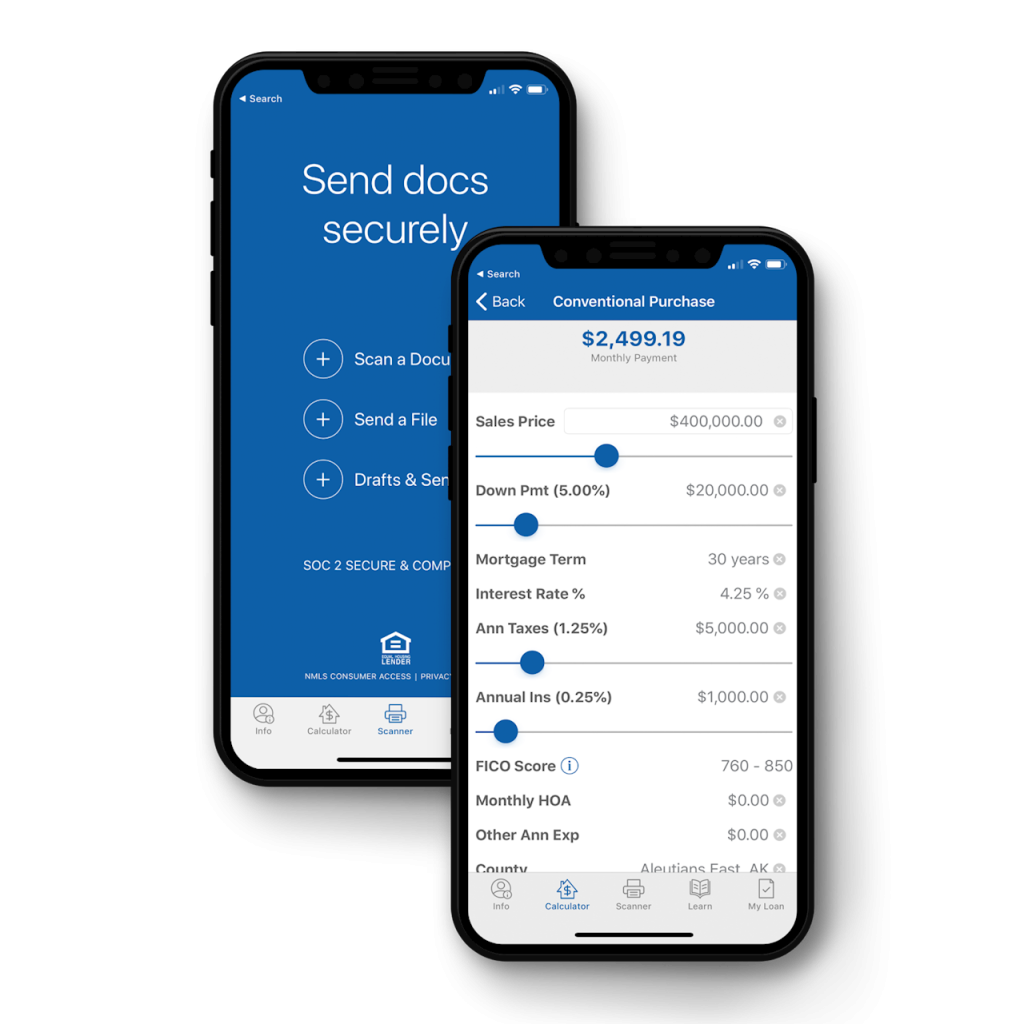Thinking about Refinancing?
We Can Help!

Thinking about Refinancing? We can help.
Refinance your way to a better mortgage.
Tell us your goals with refinancing and we’ll find the right mortgage option for you.
Take Cash Out
Paying down your mortgage builds equity you can use to take cash out – great for renovating your home or paying down high-interest debt.
Lower Your Payment
Getting a new mortgage with a lower monthly payment can help with goals like saving for college or retirement.
Shorten Your Loan Term
Become mortgage-free faster and reduce the interest you’d pay. We offer custom terms starting at 8 years.
Benefits of Refinancing
Lower Interest Rates: By refinancing to a lower interest rate, homeowners can reduce their monthly mortgage payments and save thousands of dollars over the life of the loan.
Shorten or Lengthen Loan Term: Homeowners can refinance to shorten their loan term, paying off their mortgage faster and building equity quicker.
Access Home Equity: Through a cash-out refinance, homeowners can access their home’s equity and use it for home improvements, debt consolidation, or other significant expenses.
Switching Loan Types: Refinancing allows homeowners to switch from an adjustable-rate mortgage (ARM) to a fixed-rate mortgage or vice versa, providing stability or potential savings.
Consolidating Debt: Refinancing can enable the consolidation of high-interest debts (e.g., credit cards, personal loans) into a single, more manageable mortgage payment.
Get Rid of Mortgage Insurance: Once you reach 20% equity, you may refinance to get rid of PMI.

When Does Refinancing Make Sense?
Refinancing is a smart move under certain circumstances, such as:
When interest rates are significantly lower than your current rate.
If your credit score has improved since the original loan, qualifying you for better rates.
When you plan to stay in your home for an extended period, maximizing the benefits of a new loan.
The Refinancing Process
Assess Your Goals: Determine your refinancing objectives and calculate potential savings using online calculators or consulting with a mortgage professional.
Check Your Credit: Obtain a copy of your credit report and ensure it is accurate. Improve your credit score if necessary to qualify for better rates.
Gather Documentation: Prepare essential documents, including pay stubs, tax returns, and financial statements.
Shop for Lenders: Compare offers from multiple lenders to find the most competitive rates and terms.
Submit Application: Once you’ve chosen a lender, complete the refinancing application and provide the necessary documentation.
Appraisal and Underwriting: The lender will appraise your home and evaluate your application to determine eligibility.
Closing Process: If approved, review and sign the closing documents to finalize the refinancing.


Risks of Refinancing
While refinancing offers numerous benefits, it’s essential to consider potential risks, including:
Closing Costs: Refinancing involves closing costs similar to those incurred during the original mortgage, so ensure the savings outweigh these expenses.
Extended Loan Term: Opting for a longer loan term to lower monthly payments may result in paying more interest over time.
Before proceeding with refinancing, carefully weigh the benefits against the costs and potential risks. Consulting with a mortgage professional can provide valuable insights and help you make an informed decision.
Refinancing can be a valuable financial tool when used strategically. It allows you to take advantage of favorable market conditions, improve your financial situation, and achieve long-term goals. Get started today and take control of your financial future.

